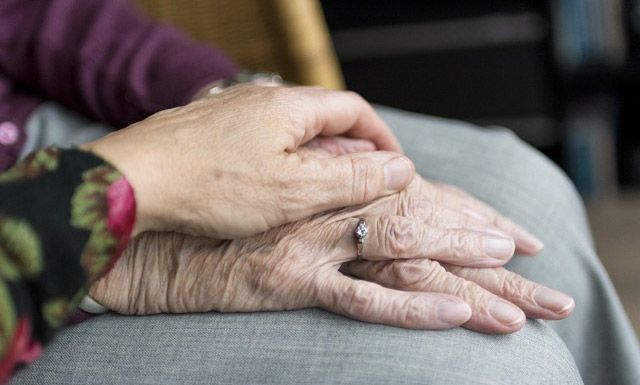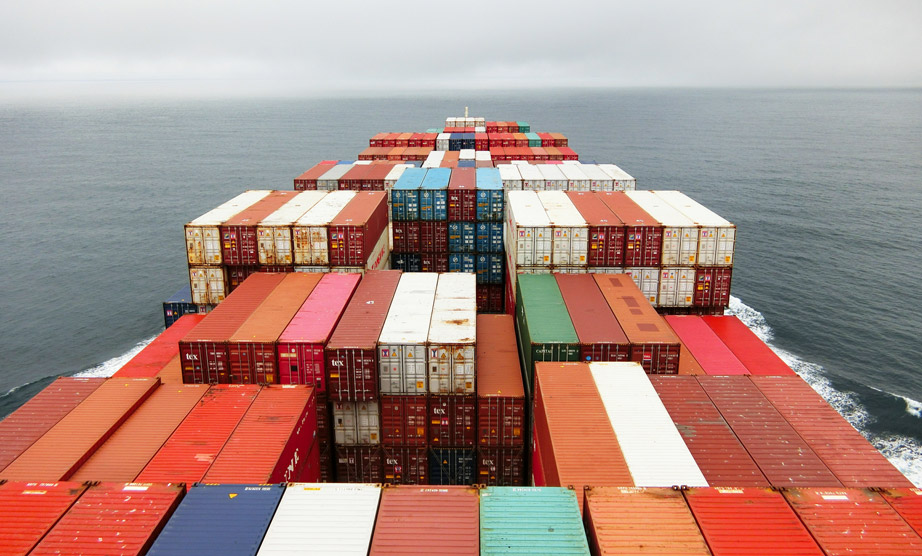#51: The impact of Covid-19 from an economic geography perspective
In these strange times, many of us have made use of this situation of confinement to think, research and discuss about how the world will keep developing during and after the Covid-19 pandemic. At the Economic Geography unit, we put together some thoughts on the current crisis and the resulting socio-economic one which is yet to arrive with full force.

As economic geographers we are concerned with issues such as neoliberalism and marketization, commodity chains, gender, care work, alternative economies and digital labor. All these elements have already changed greatly. In these last few weeks and in the upcoming months we have seen and will very likely see changes in social, health and economic policy that usually would take place over decades. The very fabric of society is rapidly changing and things are not likely to go "back to normal". A new world is being born, and this implies shifts in power of which we should all be conscious. The narratives and debates which will define the next decade are already taking place. With this blog entry, we want to raise some issues related to our research fields.
In general, we observe that Covid-19 exposes some of the contradictions inherent to the hyper-globalized economic system. We are seeing how Covid-19 and the confinement rules are affecting people unequally. Once again people of color, women, migrants and the poor are being disproportionately affected by this crisis. Yet at the same time, it seems that this global pandemic is much more variegated in its effects, also seriously putting at risk large parts of the middle class, shop owners, small and medium-sized enterprises, for instance.
With regard to our research fields, we invite civil society, social movements, private and public enterprise as well as policy-makers to be aware and considerate of the following:
Work, Labour and Precarity
Care work
The public is currently praising the importance of care work. However, this recognition has so far remained mostly symbolic. We are even seeing an increasing precarization of care workers' living and working conditions in many fields. Taking the example of transnationally organised live-in home care for the elderly, we currently find workers who have to look after an elderly person around the clock for weeks on end, because their replacements fail in the crisis. Furthermore, we see migrant care workers stuck in their home countries without any financial means, because they are left out of the financial crisis support measures of the Swiss state. In crisis, the inequalities and the fragility of a care model that relies on transnational wage differentials and precarious working conditions becomes more obvious than ever.
For more on live-in care workers under corona:
Grenzerfahrungen in der Betreuung von Betagten, WOZ, 7. Mai 2020
For a situation analysis including Germany & Austria:
Impact of the Covid-19 pandemic on live-in care workers in Germany, Austria, and Switzerland. Blog of the International Long-Term Care Policy Network, 14 May, 2020

Agriculture and food systems
The Covid-19 crisis also risks exacerbating the existing inequalities and exploitation of agricultural labourers, who are mostly seasonal migrant workers. They have to work more intensively, including not taking scheduled vacations, while typically being left in the dark about their rights and financial protections in the event of illness or accident. The Covid-19 crisis therefore exacerbates existing problems while adding new economic, social and health challenges for migrant agricultural workers. As a news headline bluntly puts it , "the harvest is safe - only the harvest workers are not". In sum, we can observe that rich countries like Switzerland have the privilege of a quite steady food supply in the time of Covid-19, whereas less privileged places and people experience extreme food shortages and increasingly precarious lives as agricultural workers.
For a more detailed analysis: Widerstand am Tellerrand
Die Ernte ist sicher - nur die Erntehelfer nicht. Das Erste | Panorama, 23.04.2020

Gig-Economy and Temporary Work
The effects of Covid-19 and related restrictions on the gig economy do lead, on the one hand, to a "digitalization" of new sectors and tasks (e.g. agriculture). On the other hand, a lot of the intermediated employment opportunities cease, because the service is no longer needed. This has existential consequences for the workers involved. The working arrangements, which are characterized by flexibility, instability and short-term contracts, typically offer no guaranteed employment and therefore no guaranteed income for the workers. If there is no gig, there is no income. Even though there are Covid-specific regulations for temp workers, it remains unlikely that gig workers would profit from these legislations. This results in increasing levels of precarity.
A Post-Neoliberal world?
A world in chains
Ever-expanding supply chains, production networks and logistical arrangements have become the hallmark of a globalized economy that thrives on a clever mobilization of borders: allowing almost frictionless mobility while simultaneously exploiting regional differences. Covid-19 has brutally exposed the contradictions and the asymmetric interdependencies of our b/ordered global economy. Soon after news about the first cases emerged from China, large parts of global commodity movements became immobilized. This also includes our research field of agricultural commodities and inputs. Chinese demand for soybeans and soybean meal, for instance, has been seriously affected, leaving farmers in Argentina, Brazil and the US to wonder about their economic livelihoods. And since China is also the key source of cheap input commodities such as glyphosate, the collapse of Chinese generic production and price increases will only further squeeze farmers' incomes globally. While the reprieve for nature will only be shortlived, there is an urgent need to rethink a food system built around "global soy" and its uneven chemical geographies.

Austerity, neoliberalization and housing
Recent weeks have seen an increase in financial rescue packages being issued by governments and central banks in many countries across the globe. There is reason to believe that, similar to during the aftermath of the financial crisis in 2008, many states will resort to even stricter austerity measures, privatization and market-oriented regulations to tackle high levels of indebtedness. In the United Kingdom, for instance, welfare services such as the National Health Service (NHS) have already come under immense strain as well as other services and charities supporting vulnerable people. For the homeless in particular this combination of reduced support infrastructures and already existing housing and job crises proves to be fatal, as this Guardian commenter notes.
Alternative Futures?
Potentials for an alternative future?
The crisis-related experiences of temporary workers in care, agriculture, the gig economy and other sectors bring to the fore existing labour-related inequalities. Moreover, they illuminate the paradoxes concerning the value ascribed to different types of labour in the capitalist system. This is particularly observable for workers who carry out social reproduction tasks, such as producing food, cleaning or caring, whose societal contributions otherwise often remain invisible. While many of these jobs are now considered to represent essential economic activities, they are still largely characterized by low wages, limited benefits, insufficient safety conditions and little job security. In order to contest the urge to "go back to normal", we need actions of solidarity that go beyond applause from balconies and demand a more radical re-evaluation of social reproductive labour.
Social movements and alternatives
This situation also poses challenges for social movements and the self-organization of workers and unions due to social distancing measures. Yet many movements and organizations remain active online and new forms of activism alongside technologies are emerging. The shift to online activism holds potential, but also faces challenges, particularly for those movements facing repressive governments. The internet and technological tools will become ever more important as sites of contestation, resistance and generation of alternatives.
A call to action
Up until now, we have only caught first glimpses of the changes happening in our research fields. More research is needed in the months to come to assess the longer-term effects of the current crisis. However, we already see now that a call for global solidarity and collaboration becomes imperative. By drawing attention to these issues in this brief blog entry, we want to encourage other scholars to join us in collectively shaping the narratives, exposing the inequalities resulting from this situation and finding solutions that move away from going back to an alleged normality. There was a societal and environmental crisis going on before Covid-19 and it will become more acute in the months to come. Therefore, we as critical researchers need to collaborate in critically analyzing the situation, engaging with the public debates and offering alternative views and practices.
Xavier Balaguer Rasillo, Christian Berndt, Johanna Herrigel, Marisol Keller, Karin Schwiter, Jennifer Steiner, Isabella Stingl, Christine Wiederkehr, Manuel Wirth